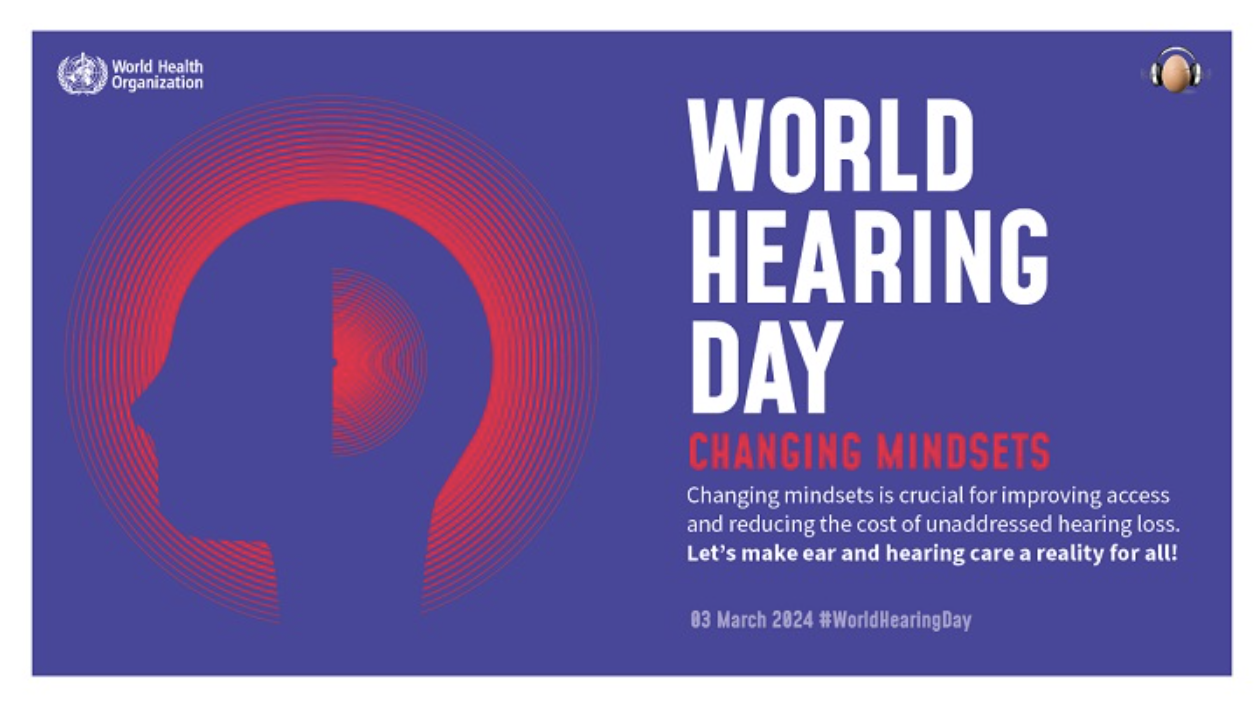
All you need to know about 2018 #DeafTalent
December 28, 2018
How my child’s mild hearing loss led to my hearing loss diagnosis
January 2, 2019Make a New Year’s Resolution to Wear Your Hearing Aids

With December drawing to a close, most of us find ourselves looking back over the year. We will look back at the good times and bad, the highs and lows, the losses, and of course, the victories.
For those of us who are new to wearing hearing aids, one of our major regrets might just be that we didn’t wear them enough. We’ll find a number of pretty good excuses. We may have found them uncomfortable to wear or thought they made us look different.
It can be a very difficult transition for those of us who experience hearing loss later in life. Many of us tend to cling to that old adage, “You can’t teach an old dog new tricks,” which simply isn’t true.
The sound difference could have something to do with the reluctance to try something new. Perhaps after years of coping and getting by, trying to get used to new things is too much of a hassle. It is often the same old story told by a new speaker, the same old tired narrative concerning things just taking far too long to settle in or to get right. But is this really a fair or sensible approach to have when it comes to something as important as our hearing?
The Getting Hearing Aids Only to Leave Them at the Back of a Drawer Syndrome is something of an enigma. Why go to the trouble of doctors’ visits and audiology appointments only to abandon what sent you there in the first place? It makes no sense – on the surface, at least. The real reason for this odd behavior seems to have more to do with expectations and disappointment than anything else.
Learning curve
When we first discover that we have hearing loss, it tends to come as a bit of a shock. Most people go through the very real stages of grief, which shouldn’t really be surprising, as losing one’s hearing is no small matter.
Once we get through this first hurdle we often experience something akin to excitement at the thought of getting hearing aids and having our hearing magically restored. Alas, we quickly learn that no amount of wishful thinking is going to ever return our hearing back to its glory days. As a result, many people simply give up at this first hurdle.
Others may get further along as they try hard with their aids, but hit up against a hard wall of bitter disappointment because they expected more. Let’s face it, a hearing aid is not a device for replacing a person’s hearing; technology just isn’t that good yet. In reality, it’s a device which helps to compensate for hearing loss – nothing more, and nothing less.
Hearing in a new way
The other thing to bear in mind about wearing a hearing aid is that it changes the way you hear sounds. It reminds me of wearing in-ear earphones, but all the time. In the past, if I had earphones in and someone wanted to talk to me, I would take them out; now I leave them in. The sounds I hear through my hearing aids aren’t the same as they used to be and it took me a short while to get used to the difference. It is this difference which puts so many people off wearing them, and why they end up in the drawer instead of being worn.
At first, the sound is unnatural. After all, it’s an electronic microcomputer with microphones and an amplifier. Why do we expect it to sound the way nature intended? Unrealistic expectations coupled with the fear of the unknown is to blame for this one.
Admittedly, getting used to the new higher pitched and sharp tones can be hard work. Like my decision to wear varifocal lenses in my glasses, all it really took was the will to succeed. It took me two tries with the varifocals before I accepted them.
Getting used to major changes in our lives is never easy. Don’t just believe me; ask any ex-smoker how difficult it was to quit. I number in those ranks too and it was one of the hardest things I have ever done.
Read more: 5 Tips for Adjusting to New Hearing Aids at Work
Be realistic
Not wearing hearing aids is a choice; nobody is going to force you to wear them. But it’s the sensible thing to do. Robert L. Martin, an audiologist, wrote in The Hearing Journal: “You don’t hear with your ears, you hear with your brain… Hearing aid use is like exercise. If you want to get your muscles in shape, you need to exercise them every day.” Any expert will tell you that it takes at least three weeks to get your brain to accept and adapt to the wearing of hearing aids.
It’s not easy getting used to something as radical as hearing aid wear. Neither was learning to ride a bike or how to drive, yet we didn’t give up after a couple of days and sling them into a metaphorical drawer. No, we just kept persevering until we conquered the challenge in question. So, why does this challenge seem too big for us?
Perhaps the answer is because it is so personal. It’s something we feel embarrassed about or unsure. It seems easier to just push the thing away, like some unwanted gift, instead of welcoming it with open arms and embracing a new way of hearing.
Embrace the gifts
Our hearing is never going to return. There’s no reset button – if only. But wearing a hearing aid can help compensate for hearing loss and give back the gifts of conversation and music.
In the grand scheme of things, is a little bit of time really too much to bear for the chance to rejoin life and society in general, not to mention the fun you might just begin to experience?
So, repeat after me: “My New Year’s Resolution is…”



